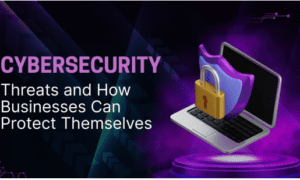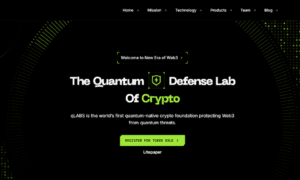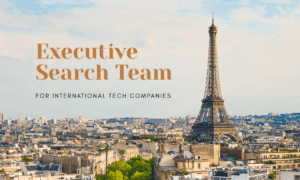Atlanta, often referred to as the “Silicon Peach,” has emerged as a growing hub for technology and innovation in the United States. As the city expands its digital footprint, its tech industry faces increasing cybersecurity threats, including the need to analyse your IP address to detect potential vulnerabilities. With hackers becoming more sophisticated, businesses, startups, and government entities in the region are under mounting pressure to safeguard their systems. Atlanta’s tech industry is actively responding to these challenges through strategic investments, public-private partnerships, and workforce development.
The Rising Cybersecurity Threats in Atlanta
Atlanta’s prominence as a tech hub comes with exposure to significant cyber risks. In 2018, the city experienced one of the most notable ransomware attacks, disrupting government services and costing millions of dollars. This event highlighted the vulnerabilities present in the region’s digital infrastructure. Since then, cybercriminals have intensified their attacks on the city’s industries, including healthcare, finance, and e-commerce, making cybersecurity a top priority for Atlanta-based companies.
Threats in the region include:
Ransomware attacks:
Holding data hostage for ransom is a frequent tactic, particularly targeting small businesses and local government bodies.
Data breaches:
Organizations holding sensitive customer or patient information, such as healthcare providers, are especially vulnerable.
Phishing attacks:
These deceptive methods are used to trick employees into revealing login credentials or financial information.
Supply chain attacks:
With Atlanta being home to logistics giants, hackers exploit third-party vulnerabilities to infiltrate systems.
The prevalence of these threats has driven the tech sector to bolster its cybersecurity practices and explore innovative solutions to ensure robust defenses.
Investments in Advanced Cybersecurity Technologies
To counter cyber risks, Atlanta’s tech companies are investing heavily in cutting-edge cybersecurity technologies. Artificial intelligence (AI) and machine learning (ML) are at the forefront of this transformation. AI-powered security tools can monitor network traffic in real-time, detect anomalies, and respond to threats faster than human intervention could. Additionally, companies are adopting blockchain to secure data transactions, creating tamper-proof digital records that protect against fraud.
Some other technologies gaining traction in Atlanta’s cybersecurity landscape include:
Zero-trust architecture:
This approach ensures that no user or system, whether inside or outside the network, is trusted by default.
Encryption tools:
Organizations are deploying advanced encryption solutions to secure sensitive data both in transit and at rest.
Cloud security platforms:
As more companies move their operations to the cloud, ensuring the security of cloud environments is becoming a key priority.
By embracing these technologies, Atlanta’s tech firms are staying one step ahead of cybercriminals while ensuring that their operations remain secure and compliant.
Collaboration Between Public and Private Sectors
Addressing cybersecurity challenges requires more than just technological advancements. In Atlanta, collaboration between the public and private sectors plays a vital role in building a resilient cybersecurity ecosystem.
Public initiatives:
The City of Atlanta works closely with state and federal cybersecurity agencies to develop policies that promote secure digital practices.
Corporate partnerships:
Tech giants such as NCR Corporation and Equifax, headquartered in Atlanta, are collaborating with smaller startups to share threat intelligence and best practices.
Academic involvement:
Institutions like Georgia Tech and Kennesaw State University are partnering with government agencies and companies to conduct cybersecurity research and develop innovative solutions.
These collaborative efforts are essential in ensuring a well-coordinated response to cybersecurity incidents. Through joint initiatives, Atlanta is creating a safer digital environment for businesses and residents alike.
Workforce Development and Training Initiatives
A key component of Atlanta’s response to cybersecurity threats lies in developing a skilled workforce. The demand for cybersecurity professionals continues to outpace the supply, making talent development a critical priority. Atlanta’s educational institutions and tech companies are working together to bridge this skills gap through specialized training programs and certifications.
Education and Upskilling Programs
Cybersecurity degrees:
Universities in the region, such as Georgia Tech, offer degree programs focused on cybersecurity, equipping students with essential technical skills.
Bootcamps and certifications:
Accelerated learning programs provide industry-relevant certifications such as Certified Ethical Hacker (CEH) and Certified Information Systems Security Professional (CISSP).
Internship opportunities:
Local tech firms collaborate with universities to offer internships, giving students practical experience in real-world cybersecurity settings.
By fostering talent development, Atlanta ensures it has a ready workforce capable of mitigating future cyber risks. The focus on upskilling also enables businesses to stay competitive and adapt to the evolving threat landscape.
Cybersecurity Startups and Innovation Hubs in Atlanta
Atlanta’s tech scene is not only home to established corporations but also an incubator for innovative cybersecurity startups. Startups specializing in threat detection, data privacy, and incident response are gaining traction and contributing to the city’s cybersecurity ecosystem. Some key players in the space include:
Pindrop:
Focused on voice security, this startup provides solutions to detect and prevent fraud in call centers.
Banyan Hills Technologies:
Known for its IoT management and security solutions, Banyan is a rising player in securing connected devices.
Digital Envoy:
This company offers advanced IP intelligence and cybersecurity solutions for businesses seeking to protect their data and networks.
Additionally, Atlanta boasts several innovation hubs, including the Advanced Technology Development Center (ATDC), which provides support to tech startups. These hubs promote collaboration and create a fertile environment for the development of next-generation cybersecurity technologies.
The Role of Regulatory Compliance
In a highly regulated environment, compliance with cybersecurity standards is a critical aspect of business operations. Organizations in Atlanta are aligning with both federal and state regulations to mitigate risks and avoid penalties. Key compliance frameworks that companies adhere to include:
General Data Protection Regulation (GDPR):
Businesses handling European Union data must comply with this framework to ensure data privacy.
Health Insurance Portability and Accountability Act (HIPAA): Healthcare providers must follow strict protocols to protect patient information.
Payment Card Industry Data Security Standard (PCI-DSS):
Retailers and financial services adopt this standard to secure payment transactions.
Atlanta’s tech industry takes these regulatory frameworks seriously, recognizing that non-compliance can result in hefty fines and reputational damage. By adhering to these regulations, companies demonstrate their commitment to cybersecurity and build trust with customers and partners.
Future Outlook: Strengthening Cybersecurity Resilience
Looking ahead, Atlanta’s tech industry shows no signs of slowing down in its fight against cyber threats. With rapid technological advancements, new vulnerabilities are bound to emerge. However, Atlanta’s proactive approach to cybersecurity—through innovation, collaboration, and talent development—positions it as a leader in cyber resilience.
The city’s focus on cybersecurity innovation will likely continue to attract investments and talent. Additionally, ongoing public-private collaborations will ensure a coordinated defense against emerging threats. As Atlanta evolves as a major tech hub, cybersecurity will remain a cornerstone of its digital strategy, safeguarding the growth and sustainability of its technology ecosystem.
Conclusion
Atlanta’s tech industry is taking bold steps to address the rising cybersecurity threats it faces. Through investments in advanced technologies, public-private collaborations, workforce development, and startup innovation, the city is building a robust cybersecurity framework. Regulatory compliance plays a key role in these efforts, ensuring that businesses operate securely and responsibly. As the threat space transform, Atlanta’s proactive response demonstrates its commitment to maintaining a secure, resilient digital environment. With a strong foundation in place, the future of cybersecurity in Atlanta looks promising, offering both safety and opportunities for growth.



































